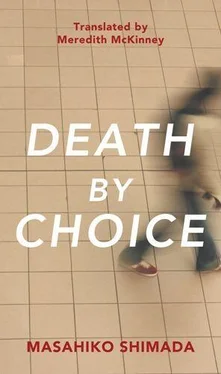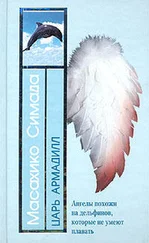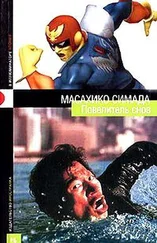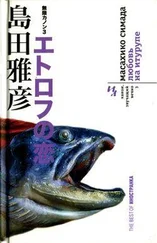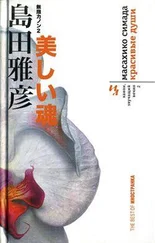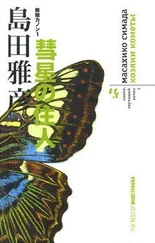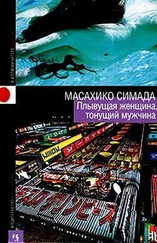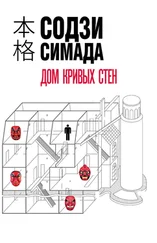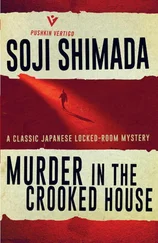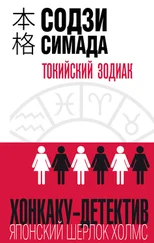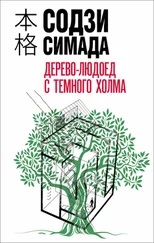“Yes, a bit.”
“There is no payout if you die in a condition of extreme drunkenness. As in the case of death in a car accident in which you were driving while under the influence or without a licence. Also, I’m sure I don’t need to tell you that there’s no payout in a situation in which the recipient of the insurance causes the death of the insured.”
“That’s Kita’s Mum in his case, and it’s her own son who’s the insured, so I don’t think we need to worry there. Now if it was me who was either the insured or the recipient, there might be room for suspicion.” Yashiro was the first to laugh at his own joke again.
Kita signed the necessary parts of the contract, and inserted his mother’s name as recipient. When he’d paid the first instalment with his credit card, Yoshiko urged him to drop in to the medical clinic across the way and get a check-up. For some reason, her brother came along too. “Are you in the insurance business too?” asked Kita.
“Not directly, but she and I do support each other in our work. Mr Yashiro asked me along today, that’s why I’m here. I’ll explain in more detail after your check-up. The truth is, I’m extremely interested in your state of health. It’s kind of my business, you might say.”
It’s none of your business at all, thought Kita, but he said nothing.
The check-up should have been a simple and straightforward matter, but the doctor took pains to listen with his stethoscope, take his pulse, and even take an X-ray, even though the results would take time to process. He also took a blood sample. It really got to Kita that thanks to Yashiro he was in the ironic position of getting a health check-up four days before his death.
Once the doctor had signed the check-up form, the insurance contract was finalized. “The money will be paid out even if you die in an unexpected accident this evening,” Yoshiko told him. Her brother congratulated him on his clean bill of health with innocent delight.
As soon as Kita was back inside the office of Thanatos Movie Productions, Kita inquired about the puzzling line of business of the brother.
“Well, you know about organ transplants, don’t you? The official term is ‘organic transplant.’ We’re in the business of organic transport. Our main job is to coordinate the transplant operation. You’ll be aware that there are a great many patients these days who need organ transplants. Traditional organ banks can’t keep up with demand, so we’re doing our best to help increase the supply of available organs. We use our own independent network to find people willing to donate an eye cornea, say, or bone marrow, or a kidney or liver, and organize the transplant for patients who are members of our club. To date, we’ve been able to coordinate one hundred and twenty-three transplants.”
“You’re telling me I should donate my organs? But if you take my liver out, I’ll die, won’t I? If I donate a cornea I’ll lose the sight of that eye, surely. And the kidney, now—”
“You have two of them,” the brother chipped in with a businesslike smile.
“So has Mr Yashiro here, doesn’t he?”
“Oh, mine are getting pretty tired. Your engine’s in much better condition than mine.”
It really did appear that Yashiro was out to sell Kita’s organs. But he couldn’t go selling things he was still using. The brother went on with his explanation.
“Naturally, the donation itself would take place only after your death, but we need the donation recorded while you’re still alive, you see.”
“Sure, I can see that. You can’t go stealing organs from dead bodies, after all. Even if the guy’s made you a verbal promise, eh?”
“But of course.” The brother spread out a brochure. “Over ninety percent of those requesting organ transplants are Japanese, but the majority of donors come from South-East Asia, China, and India. To tell the truth, we encourage people engaged in dangerous work to donate.”
In other words, the Japanese are buying Third World organs cheap just like they do with timber and oil and seafood, thought Kita.
Yashiro broke in, “His sister hopes her customers will live as long as possible, while he wants them to die as quick as they can. The younger and healthier the organs the better, after all. And Japanese organs are less of a worry, too. You’d pay more for Japanese organs than Chinese or Indian ones, wouldn’t you?”
“All organs donated to us are equally precious.”
The brother and sister exchanged a quick glance and an embarrassed if somewhat eerie smile. It was just as Yashiro had said, the two were in the same game from polar positions. Surely they already knew this. Why on earth were they siblings, when it came down to it?
“I get the feeling I’m the only person who’s not quite getting all this,” Kita remarked, and though it wasn’t particularly funny, he laughed.
Yashiro explained. “If you die, what would be the point of burning your healthy organs, after all?”
“Well no one’s going to want to eat them, are they? I guess if I was in Tibet or somewhere the vultures would, of course.”
“In Japan, there are patients with kidney or liver problems who’ll happily use them for you. They may be second-hand, but these folks will take them over and treat them well. You’re a very lucky man, you know.”
“So you’re telling me to sell ’em, that’s what you’re saying.”
“Not without payment, of course. We wouldn’t have the nerve to do that. There’s nothing that costs you more than something free, as the saying goes. No, the patients want to pay. And you can’t go offering them for a bargain, either, like they were bananas or antiques or something. That’s why I called in Mr Koikawa here.”
Mr Koikawa bowed. “I’m honoured,” he said.
To shut Yashiro up, Kita shot him a question. “You’re after something, aren’t you?”
“We’d like your corneas, liver, and kidneys.”
“How much?”
“Well it rather depends on the results of the medical check-up, but I believe we could offer you a total of one million one hundred twenty thousand yen. Just to itemize it—”
“No need to itemize. And I could get the money now?”
“We can finance at time of contract.”
“I guess that means I mortgage my organs to borrow the money.”
“Precisely.”
“The debt’s cancelled in return for the organs when I die, right?”
“Correct.”
“And if I don’t die?”
“No interest for the first month, and from then on three percent a month. We use the same repayment plan as for home loans, so you pay interest accordingly. Of course, it may be that you change your mind at some later point. You can cancel the contract if so, but this will incur an additional charge of ten percent of the original amount borrowed. That’s Plan A. In Plan B, we pay the sum for organ donation directly to the recipient of your life insurance, at the time of your death. In that case, there’s a big increase in organ price paid. Oh, and I forgot to mention that you need a guarantor if you choose Plan A.”
Kita turned to Yoshiko. “I get the feeling there’s something more to this,” he said ironically.
She responded with a look that said she had nothing to hide. “I also register clients for organ donation you know,” she said.
Her brother followed this up with a confession. “I’ve taken out insurance with my sister as designated recipient, actually.”
Was this all supposed to mean they got on well together or something?
“There’s nothing suspicious going on,” Yashiro said softly.
Well, even if there was, they’d be hiding it from him. He had nothing to gain by doubting them. “OK,” he said lightly, “I’ll sign. Mum’s going to get fifty million yen from the life insurance, so I’ll go with Plan A.”
Читать дальше
